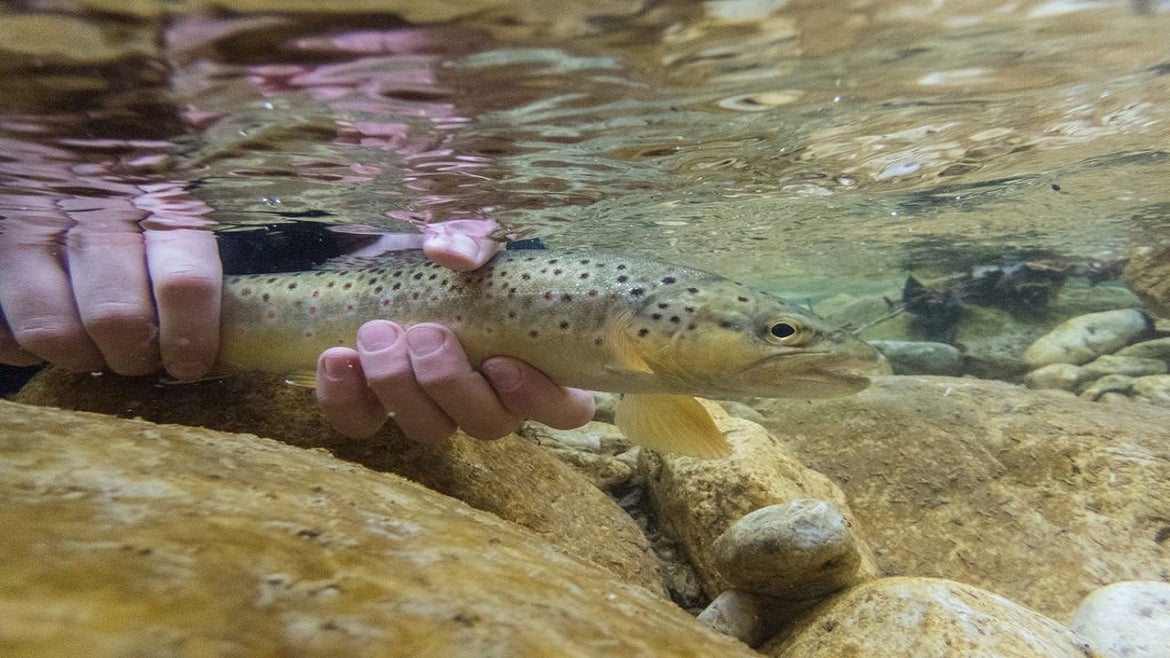Scientists in the Czech Republic were able to get trout hooked on meth during a study about freshwater pollution
The siren call of methamphetamine is so strong, even brown trout can be caught in its net.
A recent study in the Czech Republic into drug pollution in freshwater streams found that fish can become addicted to the highly addictive drug. Because meth abusers secrete the stimulant into wastewater, researchers were trying to gauge the effect on marine life when the illegal substance is found in freshwater, such as streams and rivers.
“Such contamination could change the functioning of whole ecosystems as adverse consequences are of relevance at the individual as well as population levels,” said Pavel Horký, an ecologist at the Czech University of Life Sciences in Prague who led the study, Vice reported.
Scientists placed 40 brown trout in a water tank laced with the same level of methamphetamine previously discovered in rivers. After eight weeks, the fish were moved to a clean tank.
After four days, the trout began moving toward "arenas" where meth had been placed in the water, the study said. They also exhibited lethargic behavior in freshwater, suggesting they were experiencing withdrawal.
Traces of the drug were found in the brains of exposed fish, days after they had swam in the polluted water, researchers said.
The study is another noteworthy entry into scientific research examining the presence of prescription and illegal drugs in wastewater, which migrates into waterways.
In 2019, British scientists found traces of pharmaceuticals and pesticides in freshwater shrimp. In 2018, researchers examining Pacific Ocean waters off Seattle detected the presence of opioids in mussels.
Related Stories






